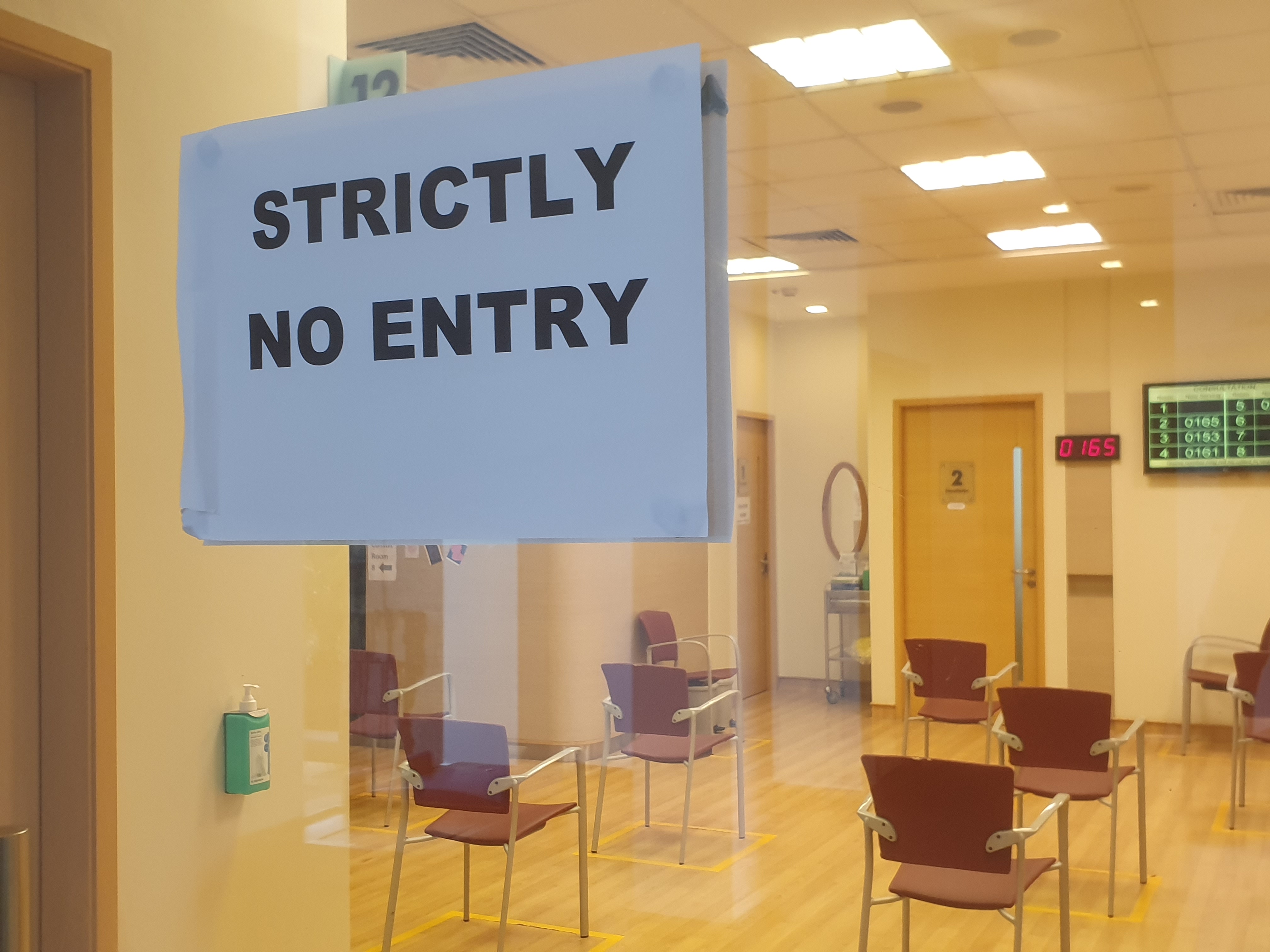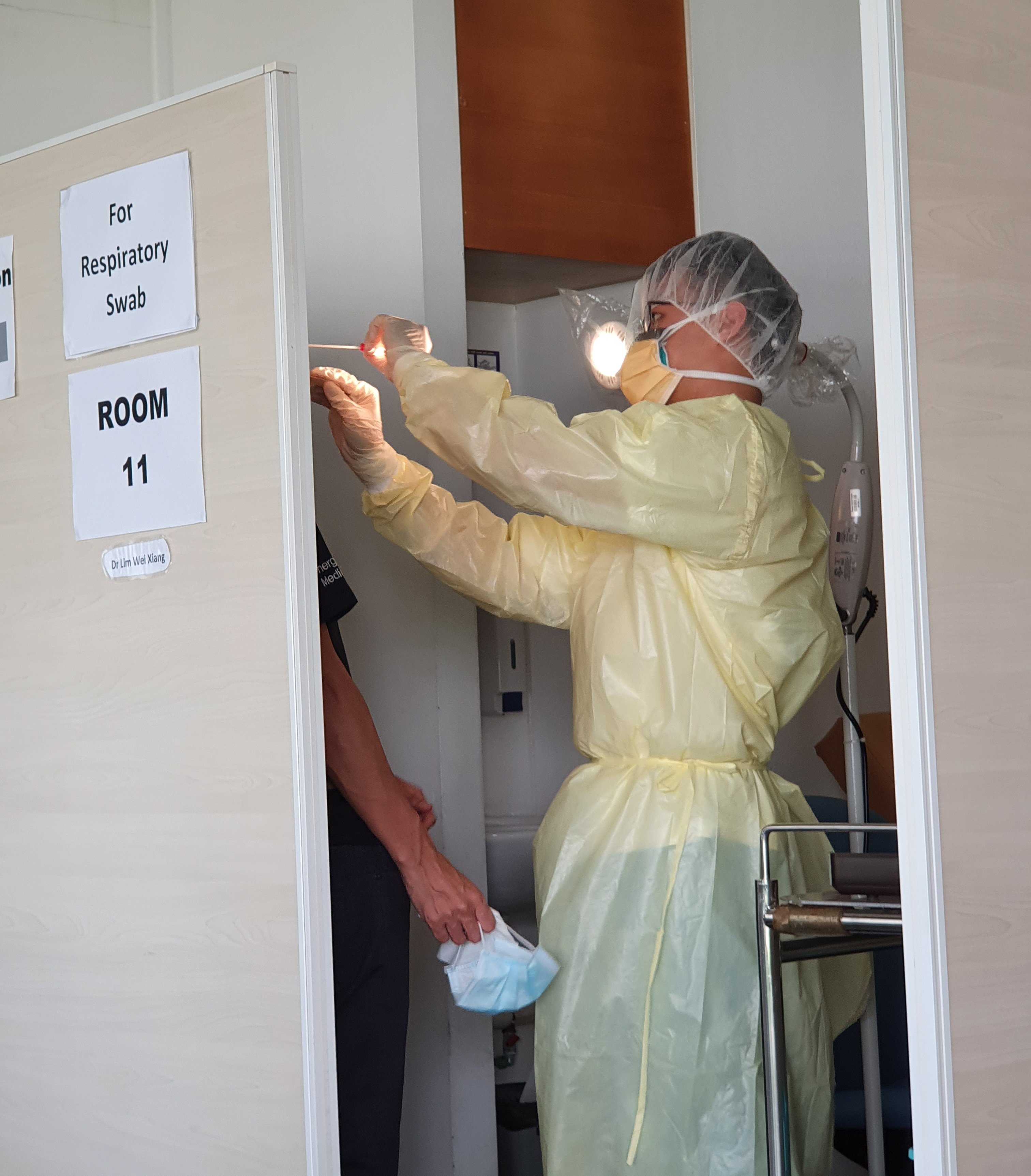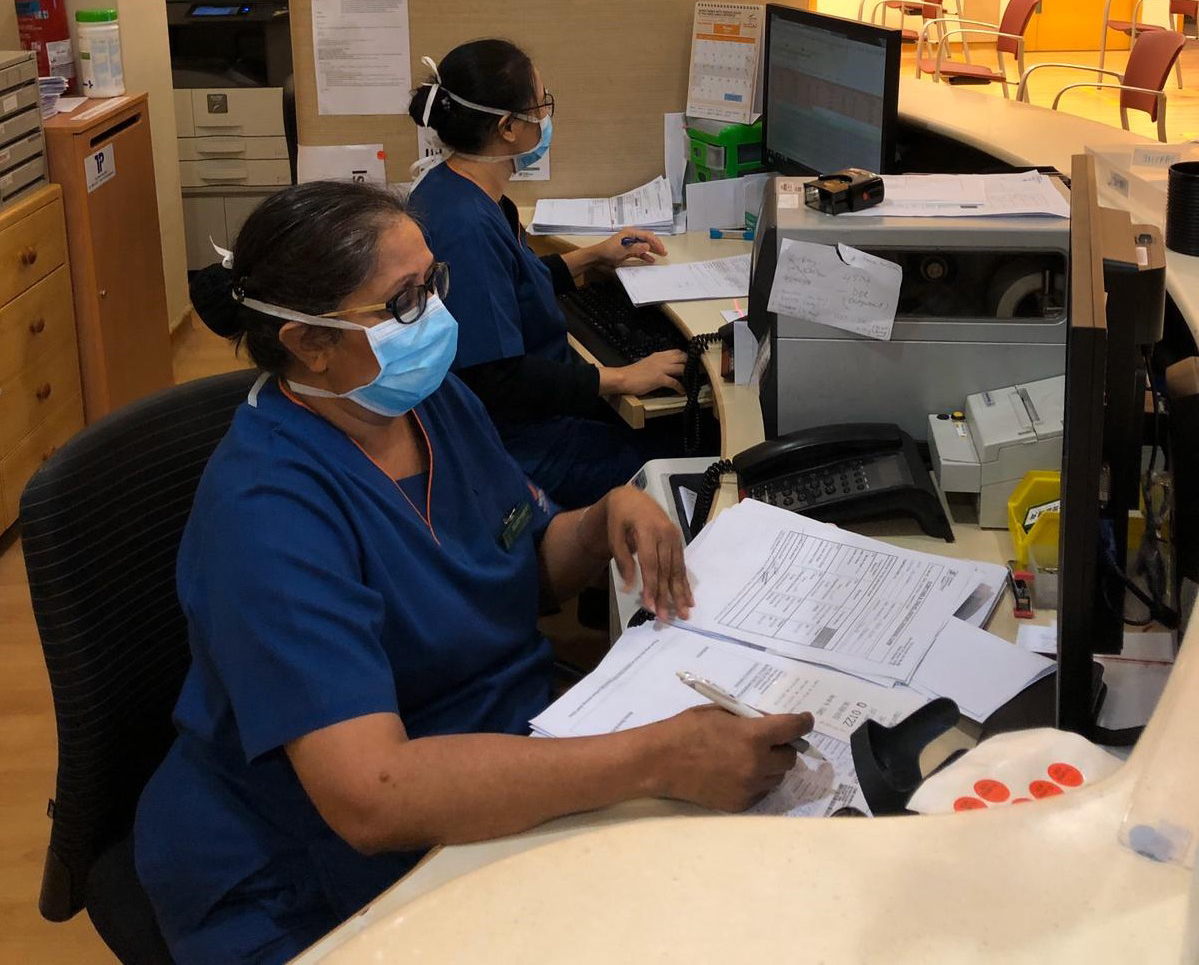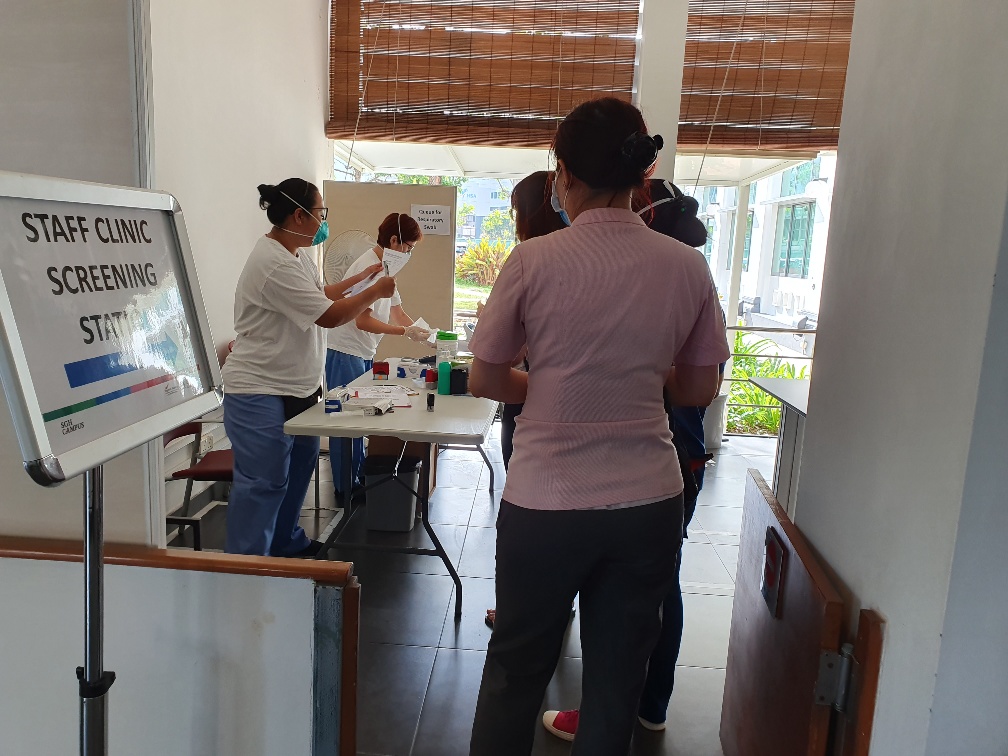Since COVID-19 first emerged in Singapore, the team at our SGH Staff Clinic has been playing a critical role in helping to ensure that colleagues who are unwell receive the appropriate medical attention and sufficient rest at home, and looking out for suspect COVID-19 cases.
“We see hospital staff with fever and upper respiratory tract infection symptoms such as cough and runny nose to ensure that they are not at risk of acquiring COVID-19. If there is a risk, we will discuss the case with our colleagues at the Department of Infectious Diseases to ascertain if the hospital staff warrants admission and isolation. This is part of our early intervention to prevent further spread of the disease to other health care workers, patients and the community. We need to prevent infection and transmission of disease among hospital staff so that we can continue to care for patients,” says Dr Lim John Wah, Consultant, Occupational and Environmental Medicine. He heads the team of five doctors at Staff Clinic during this COVID-19 period.
Extraordinary measures for extraordinary times
Staff Clinic no longer stops for lunch break. “We work throughout the day with staggered lunch breaks so that we can attend to patients as fast as possible,” says Senior Resident Physician Dr Sharon Wee.
“We have also converted one consultation room within the Staff Clinic to do chest x-ray. The Department of Diagnostic Radiology has deployed a radiographer and a portable x-ray machine to Staff Clinic. This collaboration with Radiology enables us to get the chest x-ray result faster which helps us to make a quicker clinical decision on whether to discharge the hospital staff or admit him. This way we can treat and isolate sooner.”
The team now operates out of two locations, with the addition of the former LIFE Centre. Explains Dr Sharon, “The original clinic is used to see staff with possible COVID-19 whilst the other clinic which we took over is used to attend to hospital staff with medical conditions other than acute respiratory infections, as well as elective medical requirements such as pre-employment medical examinations. This arrangement enables the segregation of staff with fever and/or respiratory symptoms from those with other medical conditions, and also ensures that the range of services provided by Staff Clinic are not disrupted.”

Chairs are placed a metre apart to prevent cross-infection.
More than double the patient load
Staff Clinic currently sees many more patients. They used to start at 8am and end at 5pm. But with the extra patient load, the team is working beyond usual office hours - at times ending beyond 7pm.
“We see more than double the patient load, especially on Mondays. As the cases build up, I feel pressured to see each staff as fast as I can, and yet address all his concerns at the same time,” admits Dr Sharon.

Throat swabs are performed in the outdoor screening area.
A faster pace
Ancillary staff such as Patient Service Associate Executive Daljeet Kaur shared: “Not only do I have double the patients to register, I also have to work much faster to meet the collection times for the throat swabs to go to the Molecular Laboratory for analysis.”
PSAE Daljeet, who was a Patient Care Associate at Ward 48 and Ward 64 for two years and has been with the Staff Clinic for the past 13 years, also arranges for the ambulance to pick-up any hospital staff who needs to be admitted. When there are many patients, she also steps up to help her nursing colleagues to triage.

Patient Service Associate Executive Daljeet Kaur has to work as fast as she can so that any swabs can make it for the three collection times each day to go to the lab.
Incessant changes
Patient load aside, the team also has to deal with incessant changes communicated through the daily Routine Instructions. “I have to keep up with the updates every single day, and inform my team of any changes as early as possible because they need to prepare the ground early in the morning before Staff Clinic opens at 8am. I make sure I check my emails regularly, even before I go to sleep. Then I will immediately notify my team of any changes via our Tiger Text Group,” says Dr John.
Agrees Senior Staff Nurse Soyah Binte Mohammad, “I have to be extra vigilant in going through the list of affected countries when screening the staff for their travel history as the list is constantly changing. I also have to triage outdoors where it is hot and muggy whilst wearing an N95 mask, but the discomfort is secondary to the knowledge that it’s for everyone’s safety including my own.” SSN Soyah also does other duties such as taking blood.

Triaging is now done outdoors where there is good ventilation.
Taking it in their stride
Despite a grueling two months, our Staff Clinic colleagues are more than surviving. "As long as I take the necessary safety precautions, there is nothing to worry about," says PSAE Daljeet, who still has the energy to wake up at 4.30am every day to prepare breakfast for her children.
Reveals Dr Sharon, “For the past two months, I was okay until I saw a confirmed case. Then I felt real fear. I got worried about bringing the virus back to my family, my elderly parents-in-law, my toddler nephew and my sister-in-law who is about to give birth. I calmed down after confiding in my colleagues, friends and husband. By sharing how they felt when they saw other confirmed cases, my colleagues helped me to feel less alone in this fight. They also reassured me that I would be fine as long as I clean my hands and wear the protective equipment.”
SSN Soyah, who has been with Staff Clinic since 1999, says, “I've been through SARS, which was more scary because it was the first time Singapore was encountering such a disease and colleagues were dying. COVID-19 is more contagious but we are more prepared now. The most important thing is to take proper precautions like wearing a mask and cleaning my hands. ”
Sleep well, eat well and rest well
Perhaps they are so cool because they have a secret recipe for coping? “I make it a point to go to bed before 10.30pm every day so that I get at least seven hours of sleep. I also do my cardio and weights workout for an hour at the gym when I have time, and maintain a healthy diet. All these are important for a strong immune system!” shares Dr John.
SSN Soyah takes time to unwind and relax with her family at the end of a long day. “It makes a big difference when you know who you’re returning home to after a strenuous day. Spending time with loved ones helps me to recharge my batteries.”
Besides going for a jog once a week, Dr Sharon turns to her trusty iPad for some respite. “Watching dramas and variety shows on Netflix at night helps me to disconnect. If I don’t step away from work, I will feel stressed, so I need to disconnect for a bit every day.”
Don’t add fuel to fire
Dr John and Dr Sharon reiterated that being socially responsible is key to stemming the spread of the disease. “If you are unwell, don't go to work. Come see us at Staff Clinic. If you are still not well after five days of medical leave, don't return to work, please come back to us for a review. So that we can pick up cases early, isolate and minimise any spread within our hospital and the community,” says Dr Sharon.
Adds Dr John, who also leads our upcoming Flu Vaccination Exercise that starts in early April, “Please get your flu shot. The current COVID-19 pandemic is tough enough. The last thing we need is an influenza outbreak to deal with. That would be 火上浇油huo shang jiao you – adding fuel to fire.”
We love mail! Drop us a note at [email protected] to tell us what you like or didn’t like about this story, and what you would like to see more of in LighterNotes.
